Narratives of Extraction – artistic and architectural perspectives on the green energy transition
Narratives of Extraction examines extractivism* by linking sites of extraction in the Nordics, Latin America, Georgia, Ukraine and Romania.
Through methods and learnings from artistic action research and eco-pedagogies it imagines possible futures. The aim is to generate trans-national knowledge about extractivism and how the green energy transition entangles local conditions with global needs – seen from the perspectives and methods of contemporary art and architecture.
The program addresses local implications from global extraction and transition flows, the urgency of re-evaluating human relationship(s) to nature and the need for capacity building within cultural institutions when developing artistic and creative collaborations in times of political instability, war conditions and climate change.
“It is important to explore what is being done around the world by artists and cultural workers that examine extractivism and the energy transition. Not only to shed light into the shadows cast by our current and upcoming production systems, but also to explore voices from different continents and extraction sites thinking what our world could look like”.
Victoria McCarthy, curator
About the project
Narratives of extraction takes place in 2025 as a series of online conversations, a workshop in Ukraine and a co-creation session in Georgia.
The overall goals are:
- To create a common ground for international cooperation between cultural institutions and actors on artistic and architectural eco-pedagogies related to extraction and destroyed nature.
- To facilitate exchange on curatorial know-how between the Nordics, South America, Ukraine and Georgia.
- To co-generate capacity building for all project partners.
- To co-design a scalable exhibition concept / method based on eco-pedagogy.

Background and partners
This project builds upon earlier research conducted by Färgfabriken on the theme of Planetary Mine, covering questions of extraction and the green energy transition seen within the arts. The first phase took place in 2023 by activating a common ground for artistic interpretations on extraction in the Nordic context, which was made public in the film program Extractions, among other activities. The second phase focused on South America throgh a collaboration with the Argentinian curator Victoria McCarthy, resulting in the exhibition El Sur.
In 2024 a dialogue was also activated with the Ukrainian partners (Daryna Pyrogova and Nina Direnko) who presented their work 30% at the Venice Biennale 2023, and the Georgian partner Tbilisi Architecture Biennale. Our conversations reflected on artistic interventions on the topics of destroyed nature, hydro power reconstructions, EU membership and capacity building in times of political unease and war. Together with Färfabriken they formed a partnership to initiate and implement this project.
Associated partner is Loredana Gaita, Politehnica University Timisoara, Romania.
Perspectives from the projec partners
Tbilisi Architecture Biennale
Tbilisi Architecture Biennial (TAB) has consistently engaged with the socio-political, economic, and environmental dimensions of resource extraction, making its participation in Narratives of Extraction a logical extension of its ongoing inquiries. Over the past two editions, as well as through its 2023 presentation at the Venice Architecture Biennale, TAB has examined themes of extraction and resource management in relation to urban transformation, temporality, and the built environment’s impact on communities.
By joining Narratives of Extraction, TAB engages critically with how extraction processes shape urban and rural landscapes, influence labor structures, and affect local socio-economic conditions. The project provides a platform for TAB to contribute its research-based approach while benefiting from international perspectives
Daryna Pyrogova and Nina Direnko (project 30%), Kiev
Talking about extractivism during wartime becomes especially crucial. Whether it’s the extraction of minerals that Trump desires as compensation for American weapons, natural resources needed for military fortifications or reconstruction, or even the human resource of men in short supply for the army, these issues demand attention. Discussing them within the Ukrainian context is often uncomfortable due to the self-censorship inherent in wartime. However, engaging in these conversations with project partners from Sweden, Argentina, and Georgia is more productive, who bring different—yet sometimes similar—perspectives shaped by their contexts.
How can we shape a constructive critical discourse on the risks to preserving natural resources during reconstruction in Ukraine and the possible negative effects of the green transition, which is now only being debated as a close perspective accelerated by the war? We will face such a task not tomorrow but very soon when the interests of various stakeholders will intersect very dramatically on the attractively vacant war-affected landscape. We are close to the dilemma, currently defined as neo-extractivism, when countries exchange rare earth minerals for social benefits. It could even be auto-extracivism in the Ukrainian case, which needs to be at least narrowly discussed and, therefore, addressed.

Loredana Gaita, Timisoara
Molding nature has always been inextricably linked to human civilization. However, the methods and goals of these actions evolve with dynamic cultures, and today, we are witnessing a shift in both language and ideology. Narratives directly influence action, making this subject one of principal interest today.
Loredana Gaita (Ph.D)is an architect and teacher who works with initiatives aimed at enhancing public, urban, and social spaces, including the revitalization of the Politehnica University Campus in Timisoara and the establishment of ecological corridors in peri-urban areas, Timișoara verde-albastră, started in 2018.

Activities
Reframing the conceptualisation of “nature” and “extraction” in times of political instability and war
March 2025
The first worksop of this project focused on discourses around the “green transition” and extractivism at large, with a special focus on contemporary artists from Latin America that explore these topics in their practice.
Divided in two days, the online workshop led by Argentinian curator Victoria McCarthy provided a background on the current “green energy transition”: international agreements, policies in place, the importance of renewable energies, the problem of storage and batteries, supply chains, extraction sites and the overall impact of a system that promises a more sustainable future.
In the second part of the workshop, McCarthy delved into case studies of artists around the world, and more specifically from Latin America, who tackle these issues in their artistic practices, through installations, videos, collaborative websites, sculptures, etc. These artists not only critically question extractivism and the “green transition”, but also allow us to imagine radically different futures.
Reframing the conceptualisation of “nature” and “extraction” in times of political instability and war
June 2025
Workshop in Lviv, Ukraine to activate a critical discourse about extractivism.
From the program:
- Thematic panel discussions:
War as a catalyst for the intensification of extraction methods.
Limits and margins of extractivism in times of political instability and war – Perspectives from Ukraine, Sweden, Georgia, Argentina, Venezuela and Romania.
How minerals shape our (in)security?
The context of agricultural extractivism in and beyond Ukraine.
Presentations of artistic and curatorial practices around extractivism
- Guided city walk with a focus on Lviv’s multicultural history.
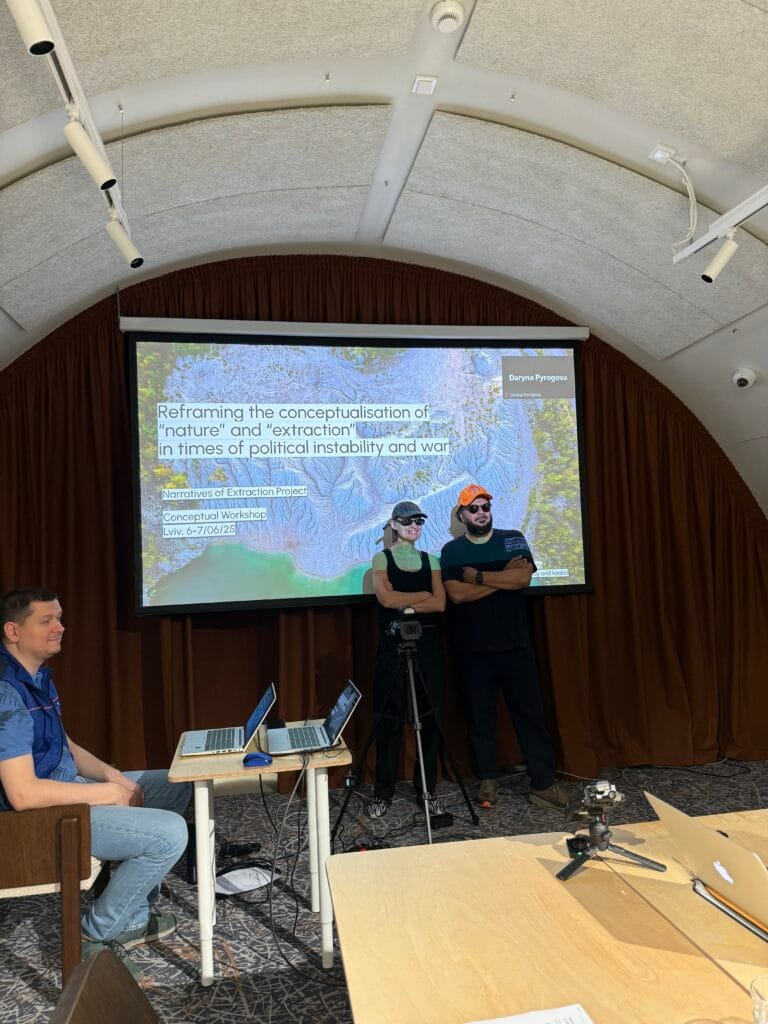
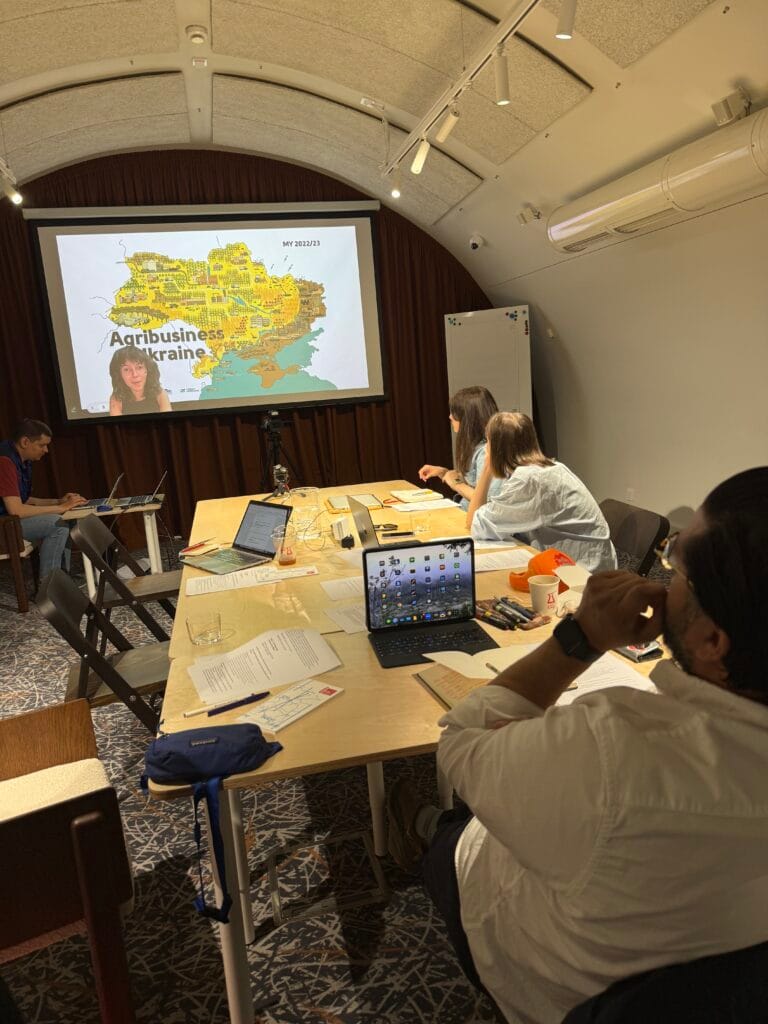
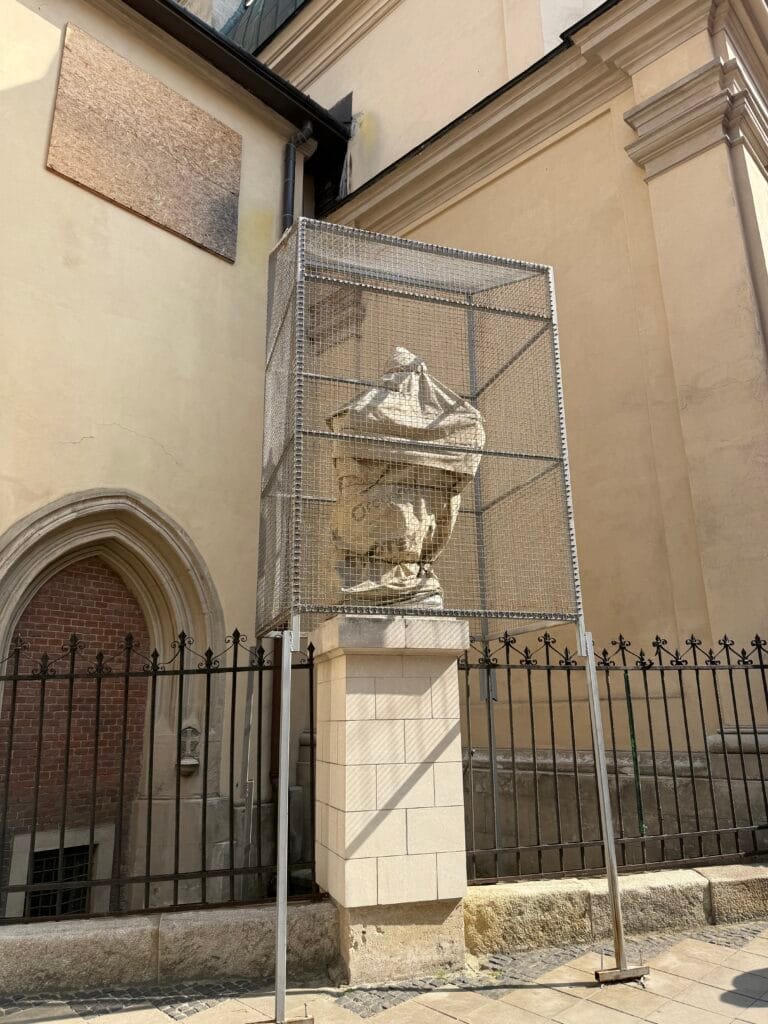
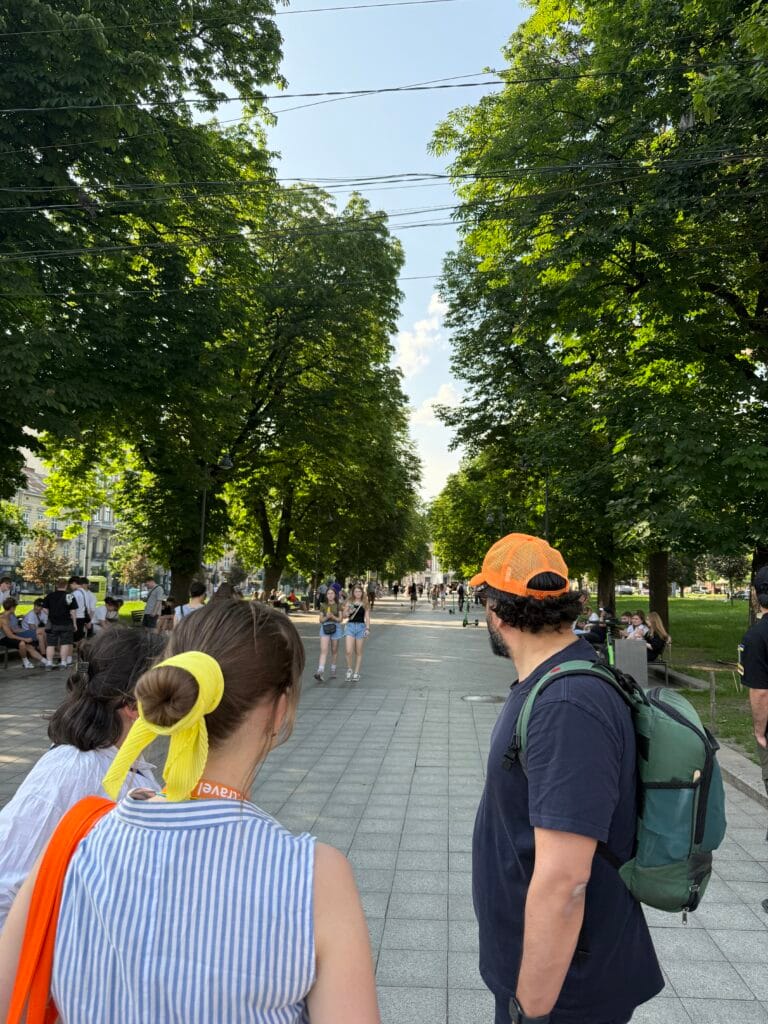
Capillary Structures: Rethinking Extractivism through Local Ecologies
Septemter 2025
An action-oriented research session in Tbilisi, exploring the intersection of extractivism, eco-pedagogy and local food systems, as well as artistic and activist methods of engagement. The workshop program explored place-specific eco-pedagogical frameworks and explored food as a medium for knowledge transfer, resistance and transnational solidarity.
From the program:
- Presentations and discussions:
Soviet-era planning and the mass introduction of subtropical plants under the USSR.
How can local ecological knowledge be incorporated into curatorial narratives?
Which curatorial and artistic approaches can highlight positive alternatives to extractivism, such as regenerative agriculture, communal gardens and local food production?
How are new policies shaped?
Discussion on cultural projects based on eco-pedagogical methods. Examples from Sweden, Ukraine, Georgia and Argentina.
Curating for co-creation and shared learning based on place, environment and context.
- Site visits and guided tours:
Dighomi Meadows
Ecovillage Kakheti
UDABNO in Kakheti
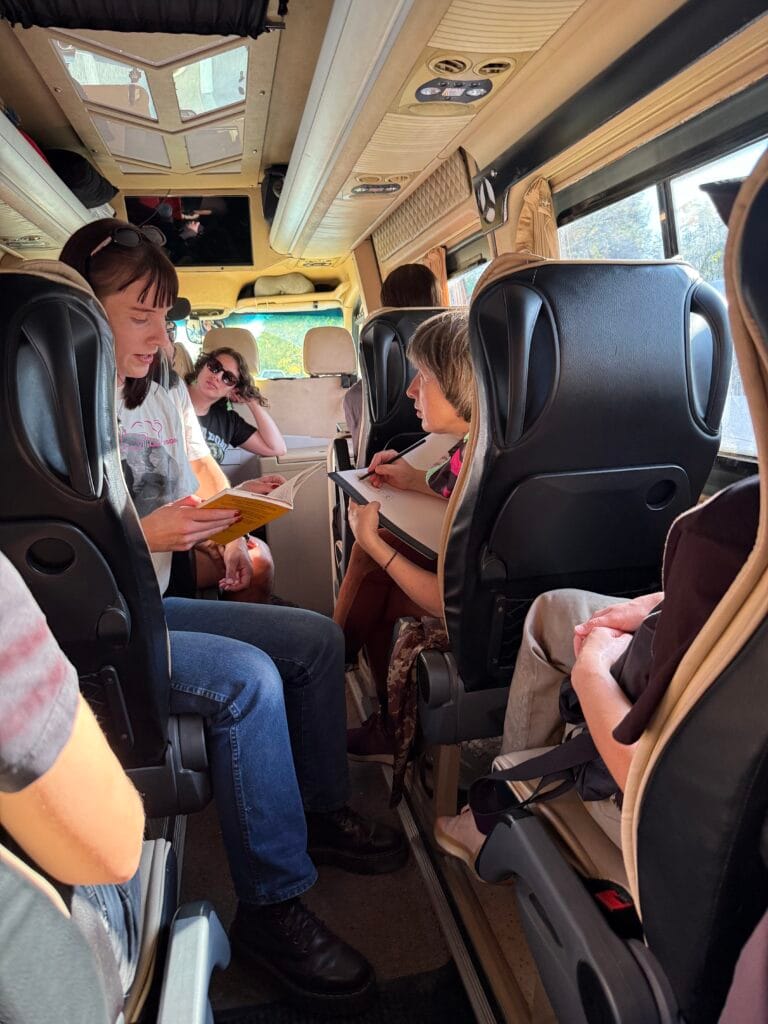
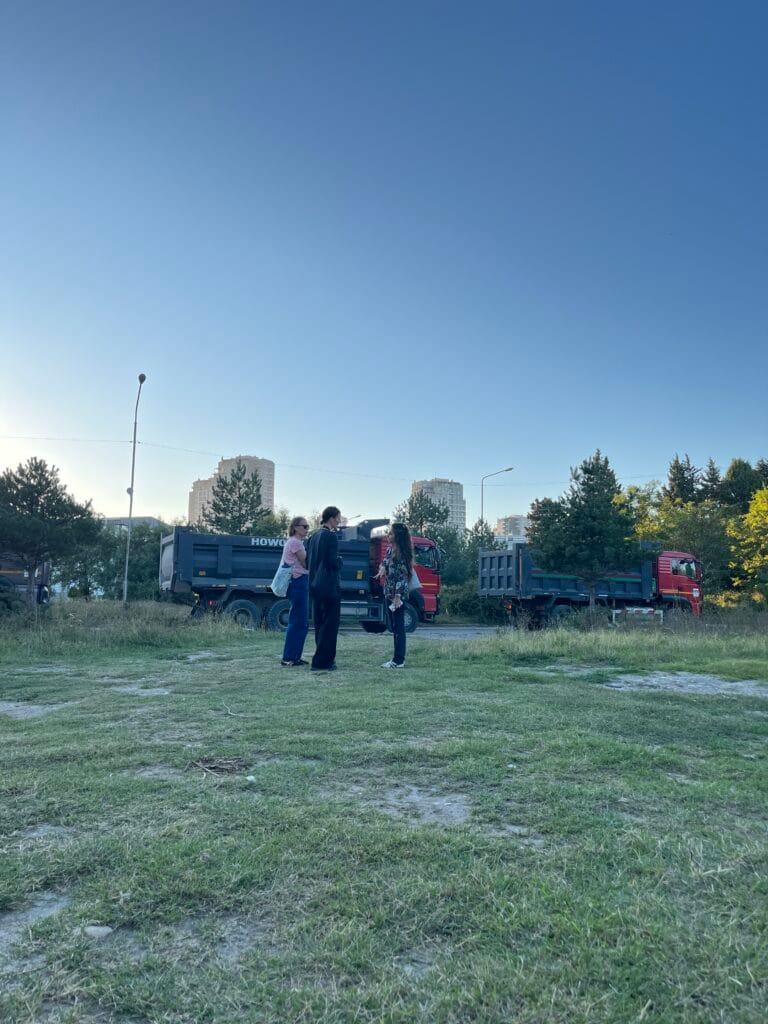
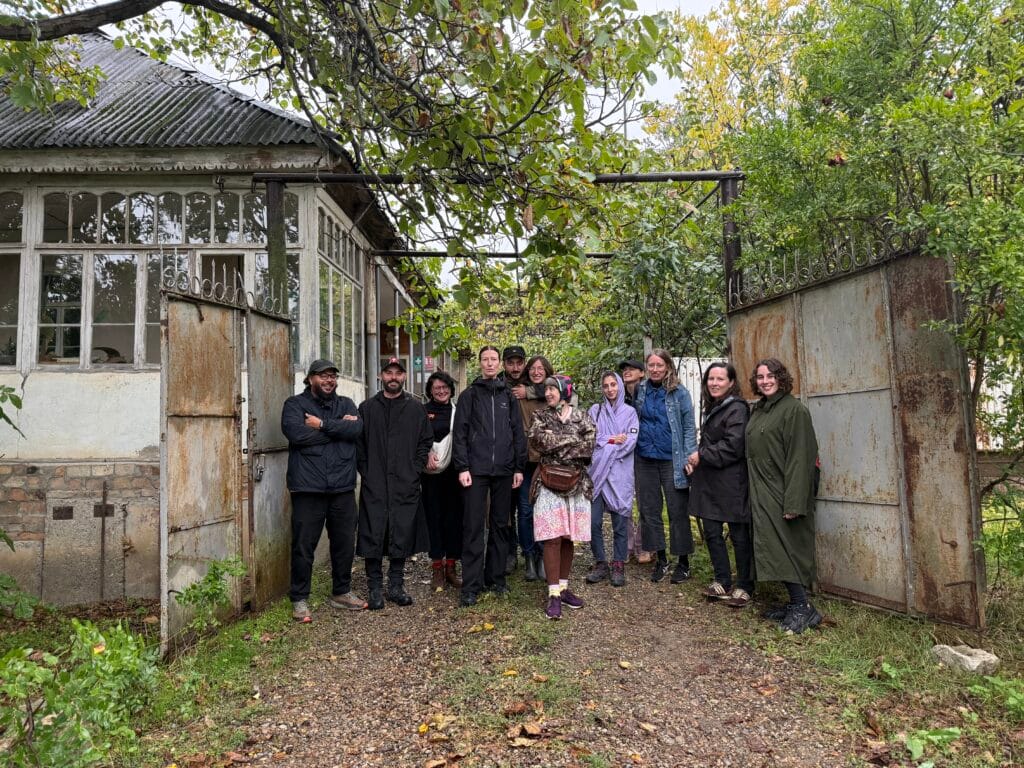
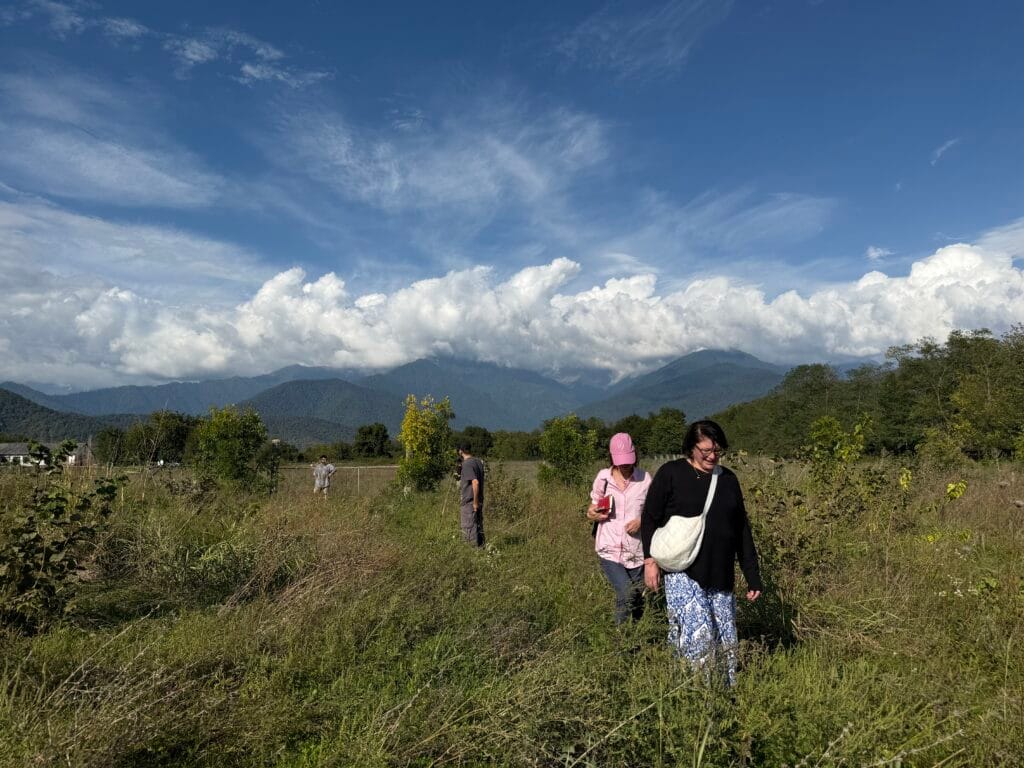
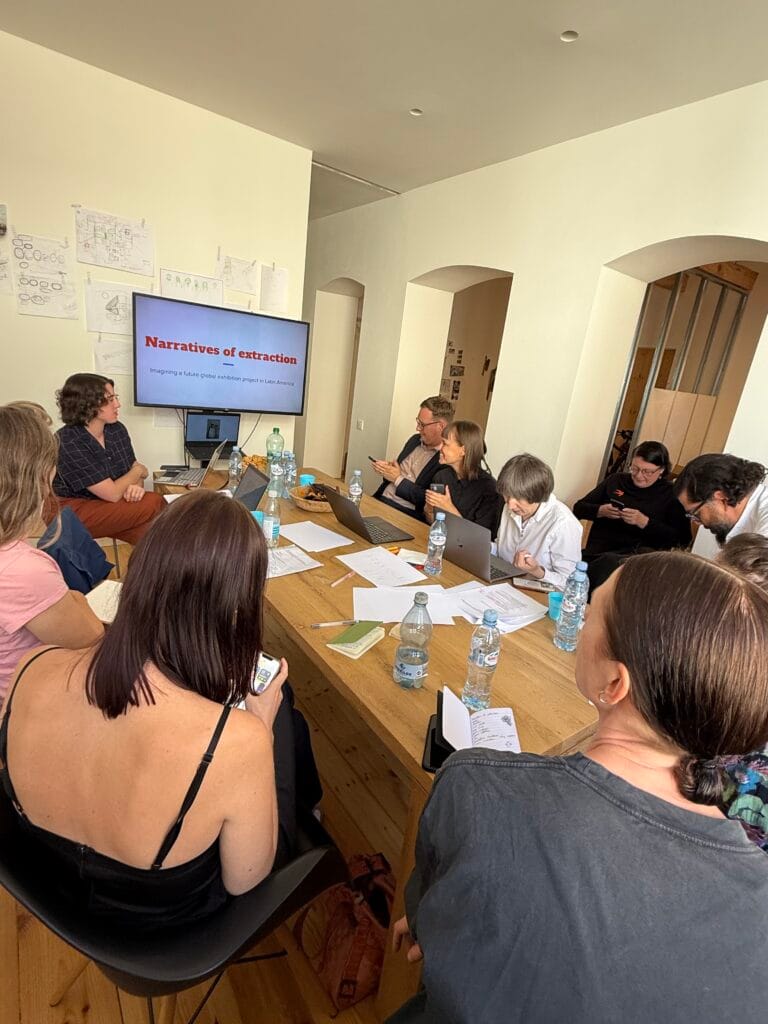
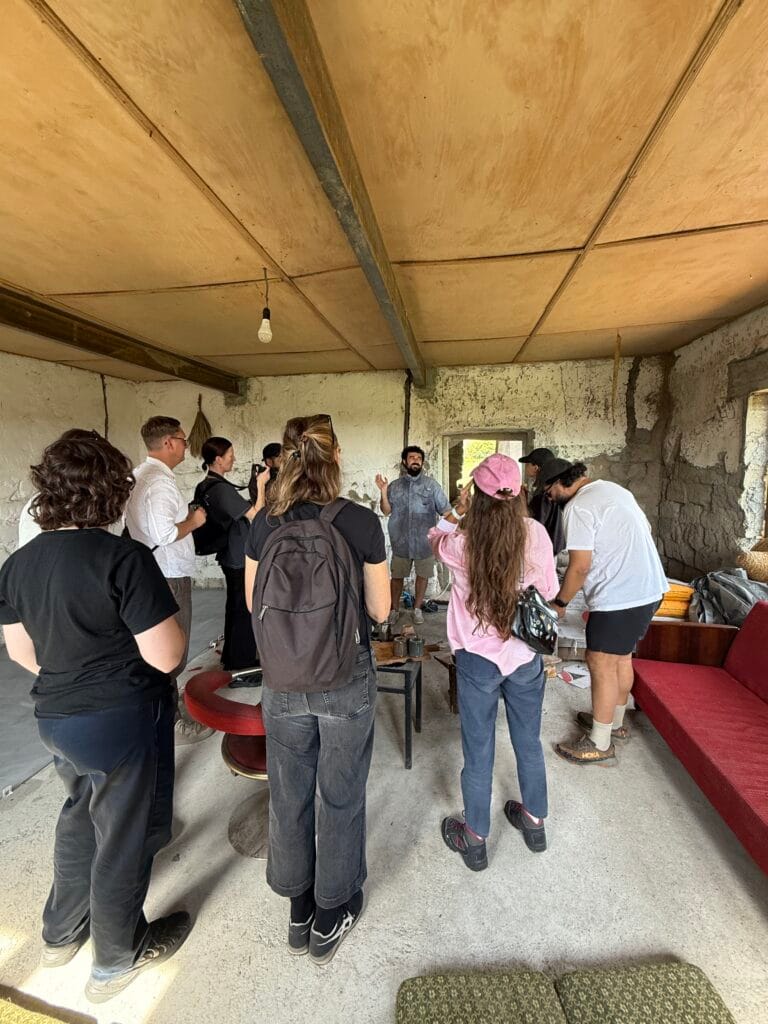
*Extractivism is an economic model based on large-scale extraction of natural resources, such as minerals, oil, and gas, often without regard for environmental and social consequences. It involves intensive exploitation of natural resources for export and economic growth, often at the expense of the well-being of local nature and communities.
Contact
Supported by
This project is funded by the Nordic Culture Fund’s program Globus Forward.


